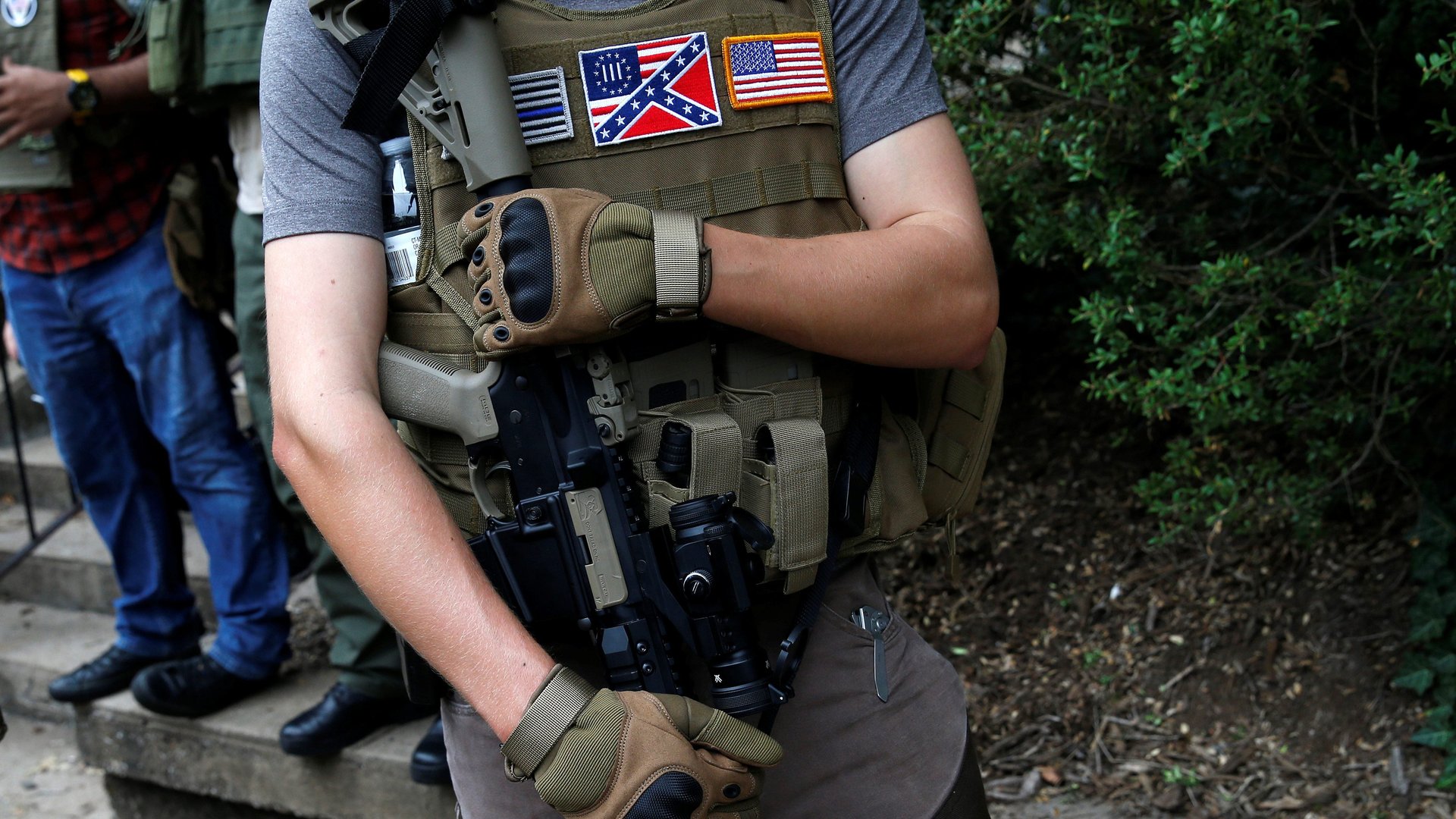The Trump administration recently stopped funding a group that combats white supremacism
One of the few organizations in the United States that’s dedicated to helping people leave far-right white-extremism groups of the type that rallied in Charlottesville, Virginia, this weekend had its funding halted by the White House less than two months ago.


One of the few organizations in the United States that’s dedicated to helping people leave far-right white-extremism groups of the type that rallied in Charlottesville, Virginia, this weekend had its funding halted by the White House less than two months ago.
Life After Hate is a Chicago-based non-profit whose group of co-founders includes Christian Picciolini, a prominent former neo-Nazi. Since last November, when Donald Trump was elected, Life After Hate has seen a 20-fold increase in requests for help, Picciolini told Politico. In June, however, the group learned that the Department of Homeland Security (DHS) had decided to halt a $400,000 grant that the outgoing Obama administration had allocated to it in mid-January.
At that time, the DHS had named 31 organizations that would be granted $10 million in funding under its Countering Violent Extremism (CVE) program. On that list, Life After Hate was the only group focused solely on far-right violent extremism, though several others include it in their mandates. The new list contains 26 organizations. An agency spokesperson told the Orange County Register in July that whether an organization partners with law enforcement (Life After Hate doesn’t) was now one of the administration’s key considerations in deciding who got grants.
Angela King, the deputy director and a co-founder of Life After Hate, told WBHM, a public radio station in Birmingham Alabama, that her organization has helped “hundreds, if not thousands of people including those trying to leave far-right groups, case workers, counselors, and family members of people who may be involved in the white supremacist movement.” It operates ExitUSA, an outreach program led by former extremists to help de-radicalize members of hate groups.
Like criminal gangs, hate groups offer their members a sense of family, power and identity. Among its many tactics, ExitUSA offers support from former members of the movement, and helps arrange meetings between those looking to leave the cause and the people against whom they promoted hatred. “As former extremists from the far right, what changed us is when we received compassion from the people we least deserved it from,” Picciolini explained to the Huffington Post. Speaking of the men and women he has rehabilitated, he added, “Often times they’ve never met a black person or had a meaningful conversation with a Muslim or Jewish person. I get them into a situation where they can sit and talk, and realize there are more things in common than differences.”
President Trump has been widely criticized for rebranding the CVE program to focus solely on extremist Islamic groups. Quartz has contacted the DHS for comment and will update this post with any response we receive.